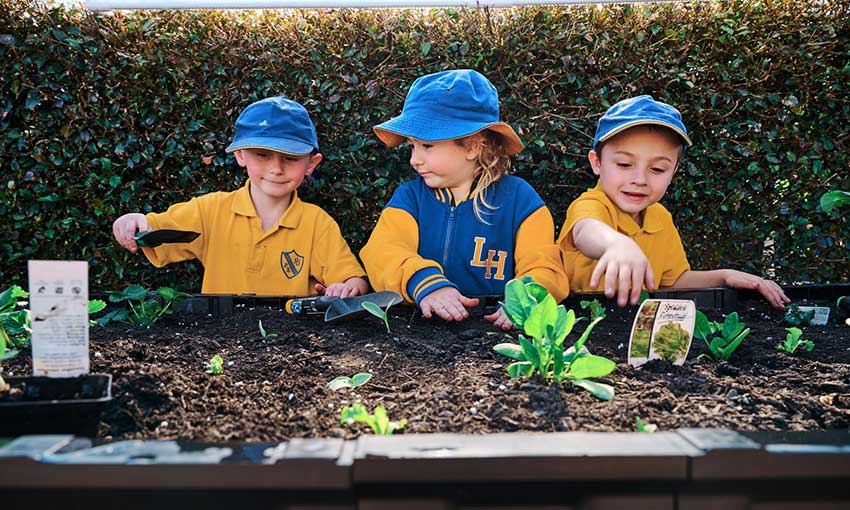NSW Ports has announced its sponsorship of the Living Classroom Partners program, which supports Illawarra school students to learn sustainability skills such as growing food, cooking nutritious meals and learning about recycling and composting.
The new three-year sponsorship continues NSW Ports’ partnership with the program, which incorporates seven schools surrounding Port Kembla.
NSW Ports communications manager Brooke Eggleton said 99% of Port Kembla’s workforce lives in surrounding neighbourhoods, making local communities a key part of how the company services the people and business of the Illawarra and NSW each day.
“Our sponsorship program is just one way we’re able to give back to local communities and work together to build inclusive, resilient and prosperous neighbourhoods,” Ms Eggleton said.
“We all have a vital role to play in working toward a better future for the environment, the economy and our society. We are proud to continue our decade-long sponsorship of Living Classroom Partners and to help educate, raise awareness and instil a commitment to sustainable practises in the next generation.
“This initiative is truly grassroots, with students planting gardens in their school grounds, learning about permaculture, harvesting and cooking what they grow and learning how to reuse and recycle to build self-sustaining food sources.”
Living Classroom Partners co-ordinator Deborah Dixon said NSW Ports’ ongoing support helped ensure the program could continue to grow and welcome more students.
“I’m immensely proud to co-ordinate this project across our local community of schools and love seeing the results from the students’ hard work and that of their teachers too,” Ms Dixon said.
“Funding partners like NSW Ports keep this project going and ensure that we can continue to improve the individual school gardens and associated educational plans.
“We also have some outstanding Living Classroom Facilitators who support this initiative across all participating schools as well as being passionate ambassadors for sustainable living.”
“These facilitators work directly with teachers and students, instructing them on how to build their ‘living classroom’ environments. They help with the rotation and harvesting of crops whilst building the capacity of local teaching staff, to support the long-term sustainability of the program.”




